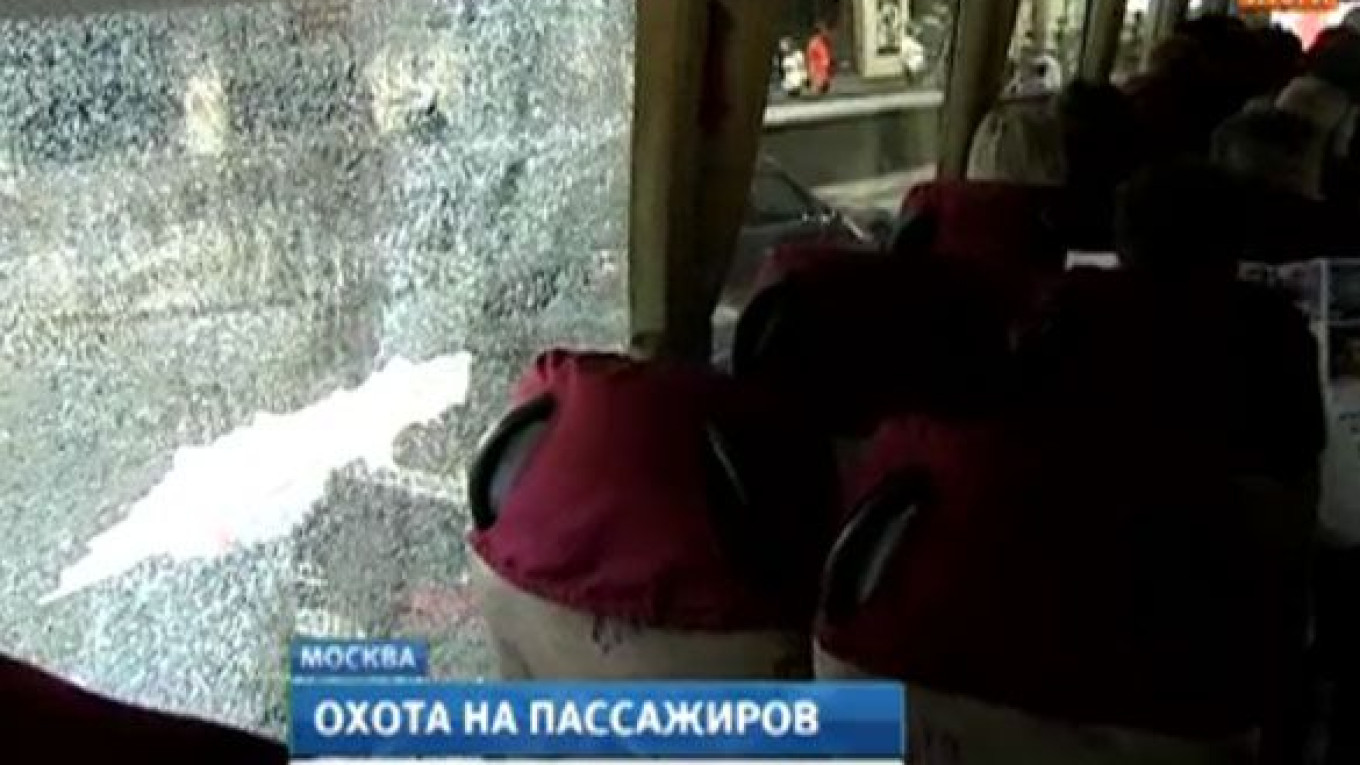Drivers are furious and police are searching for suspects after several buses were sprayed with compressed air gun fire this week, leaving windows shattered and a passenger injured.
Since January, at least 64 buses have been targeted in similar instances. Compressed air guns with a calibre less than 4.5 millimeters do not require a license to possess.
In the latest incident, a bus headed to pick up Italian tourists was sprayed with pellets from a pneumatic pistol on Monday, the state-run television network NTV .
Police chief Anatoly Yakunin has assembled a special investigation team made up of officers from the head department as well as precincts where such shootings have occurred.
In Moscow's Bus Depot No. 10, which serves the city's east and southeast, 57 buses have been attacked this year, the depot's director told NTV.
For shootings where no one was hurt, the assailants could face vandalism and hooliganism charges, which respectively carry maximum punishments of three and seven years in prison.
In December 2010, then-President Dmitry Medvedev a law banning possession of loaded pneumatic guns outside homes and shooting ranges.
Higher-calibre air guns and those with more than 7.5 joules of power are considered lethal and require a license and registration.
Under the 2010 law, any Russian citizen above 18 years of age can apply for a license to purchase such weapons but to do so must undergo a police-supervised training course and a medical examination as well as own a safe to properly store the weapons.
On Saturday, two intermunicipal buses, one traveling from Cheboksary and the other awaiting passengers headed to the Ivanonovo region, were shot on Shchyolkovskoye Shosse in eastern Moscow. One city bus was also shot that day near the Tushinskaya metro station, in the city's northwest, Interfax Monday.
On Friday, a city bus was attacked on Ulitsa Vilisa Latsisa in the city's northwest, police .
On Thursday, three buses from Depot No. 15 and a private bus were shot near the mark of the Moscow Ring Road.
On Wednesday, on Ulitsa Narodnogo Opolcheniya in the city's northwest. One passenger was injured as shards of glass burst from a broken window.
A Message from The Moscow Times:
Dear readers,
We are facing unprecedented challenges. Russia's Prosecutor General's Office has designated The Moscow Times as an "undesirable" organization, criminalizing our work and putting our staff at risk of prosecution. This follows our earlier unjust labeling as a "foreign agent."
These actions are direct attempts to silence independent journalism in Russia. The authorities claim our work "discredits the decisions of the Russian leadership." We see things differently: we strive to provide accurate, unbiased reporting on Russia.
We, the journalists of The Moscow Times, refuse to be silenced. But to continue our work, we need your help.
Your support, no matter how small, makes a world of difference. If you can, please support us monthly starting from just $2. It's quick to set up, and every contribution makes a significant impact.
By supporting The Moscow Times, you're defending open, independent journalism in the face of repression. Thank you for standing with us.
Remind me later.


